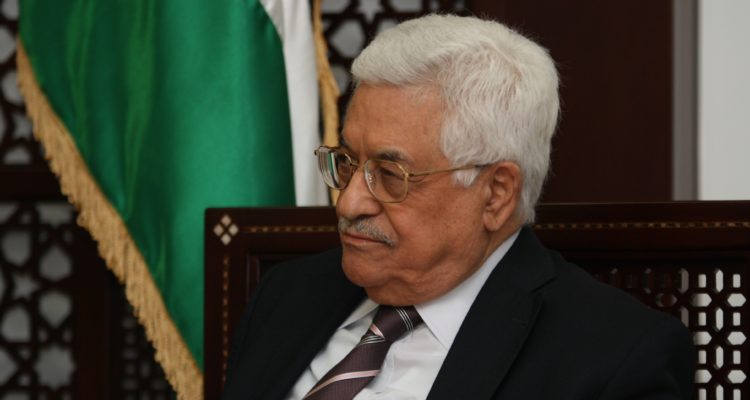Palestinian society overwhelmingly views funding to the families of terrorists as necessary social welfare payments.
Cancelling payments to the families of Palestinian terrorists would be “political suicide” for Palestinian Authority Chairman Mahmoud Abbas, a retired IDF intelligence officer and noted commentator on Palestinian affairs said Sunday.
Lt. Col. (res.) Alon Eviatar, a former intelligence officer in the illustrious Unit 8200, the IDF’s signal intelligence-gathering corps, and former advisor to the Coordinator of Government Activities in the Territories (COGAT), told the Knesset TV channel that Palestinian society overwhelmingly views payouts to the families of terrorists as necessary “social welfare” benefits. He added that Prime Minister Benjamin Netanyahu’s demand in recent weeks to stop the payments has further entrenched the position of the Palestinian public.
“The Palestinians don’t see the payments as ‘salaries for terror families.’ They view them as analogous to [the social welfare payments provided by Israel’s] National Insurance Institute. Not only are the payments part of Palestinian Authority law, but just about every sector of Palestinian public supports the payments,” Eviatar explained.
“In addition, the issue has become just another in a long string of Israeli/American demands to Abu Mazen (Mahmoud Abbas).”
No Palestinian Outrage over Jerusalem Terror Attack
Eviatar also said that there have been virtually no Palestinian voices of opposition or outrage over Friday night’s coordinated shooting and stabbing attack in Jerusalem that killed Border Policewoman Hadas Malka.
“[The attackers enjoy] wall-to-wall support in Palestinian society for two main reasons,” Eviatar said. “First of all, the attack was not carried out against a civilian. It was carried out against a military/police individual. That already takes the attack out of the realm of targeting civilians.
“The second reason was that it was carried out by the Damascus Gate, an area that Palestinians consider ‘occupied.’ So in the Palestinian mind, the attack was not comparable to an attack on civilians nor to combat targets inside sovereign Israel. Rather, it was a blow to ‘occupation forces,’” Eviatar said.
By: TPS





